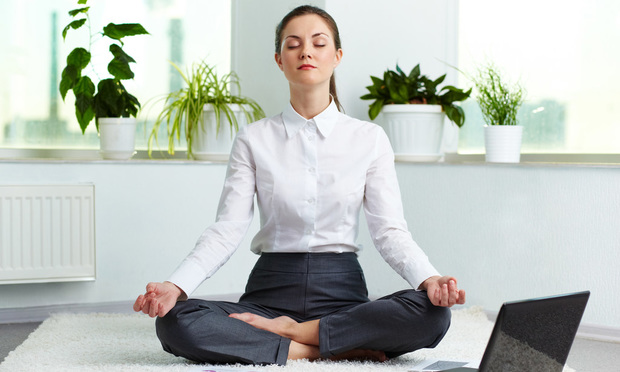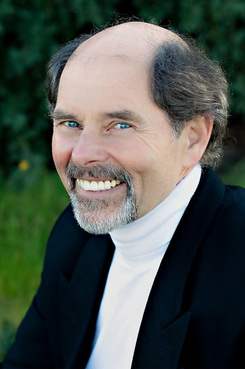New Book Points to the Link Between a Healthy Mind/Body and a Booming Legal Practice
Stewart Levine's new book is part of an ongoing trend to push wellness into the legal profession in the wake of eye-opening research showing how pervasive mental health and substance abuse issues are among lawyers.
August 27, 2018 at 11:36 AM
5 minute read
The original version of this story was published on Law.com

It's a well-known fact that lawyers suffer at high numbers from mental health and substance abuse problems, and a new book on lawyer wellness drives home a point that might motivate many attorneys to take action.
When wellness permeates an attorney's life, there's a positive impact on his law practice, clients, judges and juries, says Stewart Levine, editor and curator of the recently released book, “The Best Lawyer You Can Be: A Guide to Physical, Mental, Emotional, and Spiritual Wellness.” Levine, whose book was published by the American Bar Association, recruited lawyers and wellness experts to pen chapters that serve as a guide toward lawyer wellness, suggesting things such as practicing yoga in the office, eating nutritiously, exercising and giving back through pro bono and volunteerism and building resilience.
The book is part of an ongoing trend to push wellness into the legal profession in the wake of eye-opening research over the past few years that showed how pervasive mental health and substance abuse issues are among lawyers. For example, 21 to 36 percent of lawyers are problems drinkers, 28 percent suffer depression, 19 percent have anxiety and 23 percent are impaired by stress, according to the 2016 study by the American Bar Association Commission on Lawyer Assistance Programs and the Hazelden Betty Ford Foundation.
The Recorder affiliate Law.com spoke about the book with Levine, the founder of Alameda-based ResolutionWorks, a consulting, training and coaching business that focuses on problem-solving, collaboration and conflict resolution. Here are his answers, edited for brevity and clarity.
What are the most important lessons that you hope that lawyers will incorporate into their lives and practices?
They would realize that law is very, very much an intellectual pursuit and it is completely and fully engaging. If you don't pay attention to taking care of yourself, you're not going to be very effective at helping clients.
 Stewart Levine.
Stewart Levine.There are probably many lawyers who know they ought to make healthy living improvements, but many don't do it. What's the case you're making about why lawyers must embrace wellness to impact their law practices?
If you feel good, you're going to look good and you'll actually project a much more professional image. There's impact on clients, impact on juries, impact on people you meet that could be referral sources. This whole notion of having a vibrant self comes from paying attention to wellness. Somewhere between 70 to 90 percent of communication is nonverbal. What are messages you are giving off if you are not in a state of wellness?
The book delves into emotional intelligence as a cornerstone of lawyer wellness. Why is self-awareness a critical first step?
It's the old story of someone who has an argument with a significant other at home before they walk out the door, and the first thing they do walking out the door is kick the dog, then get into the workplace and snarl at the receptionist, are nasty to an associate. A level of self-awareness would have [enabled you to see]: I've been triggered and agitated and the people I interact with the rest of the day don't deserve the venom. I need to be mindful and self-aware enough to adjust my personal state so I can show up for work as a resourceful person. It's simple, but you have no idea how many people don't have that level of consciousness.
The book explains how engagement is part of emotional intelligence. What are real-world examples of how lawyers can engage more in the practice of law and wider legal profession to pursue wellness?
Engagement is a critical skill for building relationships, creating relationships, creating teams, collaborating effectively, managing conflict and differences. Some of the skills that lawyers learn in being powerful litigators and being combative—they're not necessarily the best skills for collaborating, for managing a law firm, for being part of a marriage or significant relationship. Having those social or interactive skills are really critical for an effective life and law practice.
How could lawyer wellness change the wider legal profession?
If lawyers have thoughts of well-being about them it could serve to elevate the whole legal profession, and the minds of the general public, in terms of having a greater level of service mentality—being relational and taking care of other human begins. This phrase that always stuck in the back of my mind is: A person with a problem comes to a lawyer and it turns into the lawyer's case. Somehow, that person is lost. Greater levels of well-being and humanity could contribute to greater levels of customer service and taking care of clients—not to mention the impact on the entire legal culture, which not just in my opinion, but the opinion of many, has really deteriorated in the last 25 to 30 years. The practice of law used to be a lot more civil. A sense of well-being could contribute to greater levels of civility in the profession.
Angela Morris is a freelance journalist. Follow her on Twitter at @AMorrisReports
This content has been archived. It is available through our partners, LexisNexis® and Bloomberg Law.
To view this content, please continue to their sites.
Not a Lexis Subscriber?
Subscribe Now
Not a Bloomberg Law Subscriber?
Subscribe Now
NOT FOR REPRINT
© 2025 ALM Global, LLC, All Rights Reserved. Request academic re-use from www.copyright.com. All other uses, submit a request to [email protected]. For more information visit Asset & Logo Licensing.
You Might Like
View All
Build It and They Will Come: Tips to Market Your Practice as a Junior Attorney
6 minute read
Yelp Sues Google for Alleged Antitrust Violations, Citing Previous 'Watershed' Government Ruling

There's Something in the Water: San Diego Is Once Again a Hot Market for National Law Firms
6 minute read
What Happens When You Go Viral? How a Law Firm Associate Manages Her Social Media Success
5 minute readTrending Stories
Who Got The Work
J. Brugh Lower of Gibbons has entered an appearance for industrial equipment supplier Devco Corporation in a pending trademark infringement lawsuit. The suit, accusing the defendant of selling knock-off Graco products, was filed Dec. 18 in New Jersey District Court by Rivkin Radler on behalf of Graco Inc. and Graco Minnesota. The case, assigned to U.S. District Judge Zahid N. Quraishi, is 3:24-cv-11294, Graco Inc. et al v. Devco Corporation.
Who Got The Work
Rebecca Maller-Stein and Kent A. Yalowitz of Arnold & Porter Kaye Scholer have entered their appearances for Hanaco Venture Capital and its executives, Lior Prosor and David Frankel, in a pending securities lawsuit. The action, filed on Dec. 24 in New York Southern District Court by Zell, Aron & Co. on behalf of Goldeneye Advisors, accuses the defendants of negligently and fraudulently managing the plaintiff's $1 million investment. The case, assigned to U.S. District Judge Vernon S. Broderick, is 1:24-cv-09918, Goldeneye Advisors, LLC v. Hanaco Venture Capital, Ltd. et al.
Who Got The Work
Attorneys from A&O Shearman has stepped in as defense counsel for Toronto-Dominion Bank and other defendants in a pending securities class action. The suit, filed Dec. 11 in New York Southern District Court by Bleichmar Fonti & Auld, accuses the defendants of concealing the bank's 'pervasive' deficiencies in regards to its compliance with the Bank Secrecy Act and the quality of its anti-money laundering controls. The case, assigned to U.S. District Judge Arun Subramanian, is 1:24-cv-09445, Gonzalez v. The Toronto-Dominion Bank et al.
Who Got The Work
Crown Castle International, a Pennsylvania company providing shared communications infrastructure, has turned to Luke D. Wolf of Gordon Rees Scully Mansukhani to fend off a pending breach-of-contract lawsuit. The court action, filed Nov. 25 in Michigan Eastern District Court by Hooper Hathaway PC on behalf of The Town Residences LLC, accuses Crown Castle of failing to transfer approximately $30,000 in utility payments from T-Mobile in breach of a roof-top lease and assignment agreement. The case, assigned to U.S. District Judge Susan K. Declercq, is 2:24-cv-13131, The Town Residences LLC v. T-Mobile US, Inc. et al.
Who Got The Work
Wilfred P. Coronato and Daniel M. Schwartz of McCarter & English have stepped in as defense counsel to Electrolux Home Products Inc. in a pending product liability lawsuit. The court action, filed Nov. 26 in New York Eastern District Court by Poulos Lopiccolo PC and Nagel Rice LLP on behalf of David Stern, alleges that the defendant's refrigerators’ drawers and shelving repeatedly break and fall apart within months after purchase. The case, assigned to U.S. District Judge Joan M. Azrack, is 2:24-cv-08204, Stern v. Electrolux Home Products, Inc.
Featured Firms
Law Offices of Gary Martin Hays & Associates, P.C.
(470) 294-1674
Law Offices of Mark E. Salomone
(857) 444-6468
Smith & Hassler
(713) 739-1250






